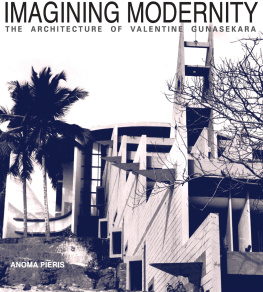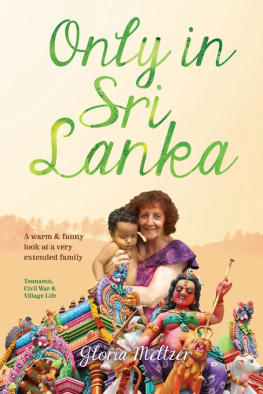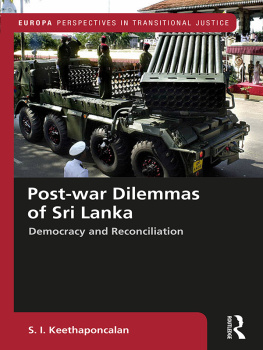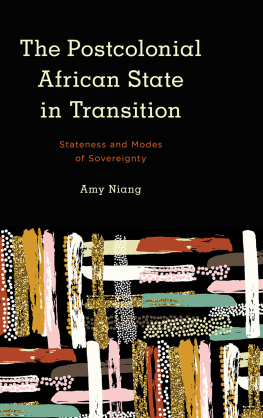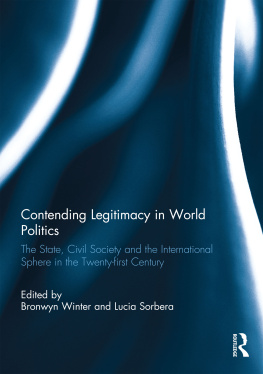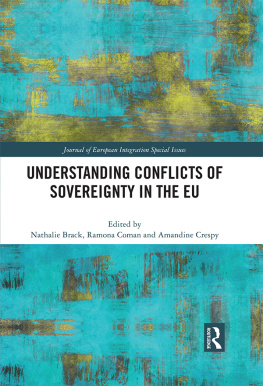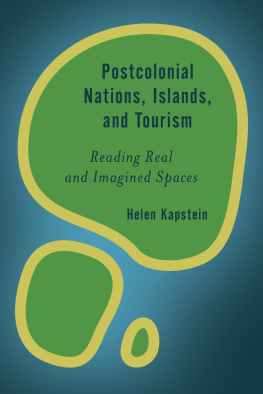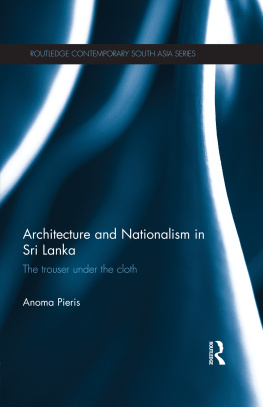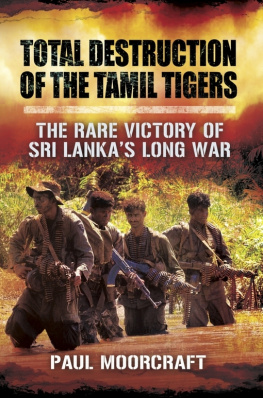Sovereignty, Space and Civil War in Sri Lanka
Analyses of the Sri Lankan civil war (19832009) overwhelmingly represent it as an ethnonationalist contest, prolonging postcolonial arguments on the creation and dissolution of the incipient nation-state since independence in 1948. While colonial divide-and-rule policies, the rise of ethnonationalist lobbies, structural discrimination and majoritarian democracy have been established as grounds for inter-ethnic hostility, there are other significant transformative forces that remain largely unacknowledged in postcolonial analyses.
This ambitious multiscalar spatial study of civil war in Sri Lanka offers an intersectional, de-ethnicised analysis of political sovereignty drawn out by the struggle for territory. Based on vital retrospective findings from the five-year postwar period, when wartime hostilities were still festering, it convincingly links ethnonationalism to postnational border politics, marketisation, militarised securitisation and illiberal democracy. This book argues that internecine conflict exposes the implicit violence within nation-state formations; mass human displacements heighten collective and individual ontological insecurity and neoliberalism makes the nation porous in unforeseen ways. Based around three themes normative spaces, human mobilities and exilic states it is organised into ten comprehensive, chapter-based explorations of a range of spatial units, including homes, cities, routes, camps and experiences of ruin that were irrevocably politicised by protracted conflict. Focusing on their material transformations over a thirty-seven-year period, the book explores what can be known of the war if we look beyond ethnicity to other salient, shared geographical features of this embattled history. The book uncovers how fealty to exclusionary cultures of political sovereignty aligns us with their violence, limiting our capacity for empathy, a boundary seemingly exacerbated by neoliberal opportunities.
Making use of Sri Lanka as a case study to test geographic, architectural and urban methodologies for understanding violence, this book acts as a provocation to rethink current readings of the particular case study while reflecting on the more general impact of marketisation and militarisation in Asia. It will be of interest to an interdisciplinary audience, including those scholars interested in South Asian history, politics and civil war, South Asian studies, border studies, geography, and architecture and urban studies.
Anoma Pieris is an associate professor at the Faculty of Architecture, Building and Planning, The University of Melbourne, Australia. She is an architectural historian by training with a specialist focus on South and Southeast Asian architecture. Her previous publications include Architecture and Nationalism in Sri Lanka (Routledge, 2012) and, co-authored with Janet McGaw, Assembling the Centre (Routledge, 2014).
Routledge/Asian Studies Association of Australia (ASAA)
South Asian Series
Edited by Duncan McDuie-Ra, the University of New South Wales, Australia.
Published in association with ASAA, represented by Ernest Koh, chair of the ASAA Publications Committee, Monash University, Australia.
Founded in 1986 to publish outstanding work in the social sciences and humanities, the SAPS entered a new phase in 2010 when it joined with Routledge to continue a notable tradition of Australian-based research about South Asia. Works in the series are published in both UK and Indian editions.
SAPS publishes outstanding research on the countries and peoples of South Asia across a wide range of disciplines including history, politics and political economy, anthropology, geography, literature, sociology and the fields of cul-tural studies, communication studies and gender studies. Interdisciplinary and comparative research is encouraged.
Suicide and Society in India
Peter Mayer
Women and Domestic Violence in Bangladesh
Seeking a Way Out of the Cage
Laila Ashrafun
Transitional Justice in Nepal
Interests, Victims and Agency
Yvette Selim
India and the Anglosphere
Race, Identity and Hierarchy in International Relations
Alexander E. Davis
Sovereignty, Space and Civil War in Sri Lanka
Porous Nation
Anoma Pieris
For more information about this series, please visit:
www.routledge.com/asianstudies/series/ASAASAS
First published 2019
by Routledge
2 Park Square, Milton Park, Abingdon, Oxon OX14 4RN
and by Routledge
711 Third Avenue, New York, NY 10017
Routledge is an imprint of the Taylor & Francis Group, an informa business
2019 Anoma Pieris
The right of Anoma Pieris to be identified as author of this work has been asserted by her in accordance with sections 77 and 78 of the Copyright, Designs and Patents Act 1988.
All rights reserved. No part of this book may be reprinted or reproduced or utilised in any form or by any electronic, mechanical, or other means, now known or hereafter invented, including photocopying and recording, or in any information storage or retrieval system, without permission in writing from the publishers.
Trademark notice: Product or corporate names may be trademarks or registered trademarks, and are used only for identification and explanation without intent to infringe.
British Library Cataloguing-in-Publication Data
A catalogue record for this book is available from the British Library
Library of Congress Cataloging-in-Publication Data
A catalog record has been requested for this book
ISBN: 978-0-8153-7161-8 (hbk)
ISBN: 978-1-351-24634-7 (ebk)
Typeset in Times New Roman
by Wearset Ltd, Boldon, Tyne and Wear
To Summa
Figures (maps) by the author, Anoma Pieris.
were drawn by the author, Anoma Pieris, with the cartographic layout by Chandra Jayasuriya.
were photographed by the author, Anoma Pieris.
Photographed by Deshan Tennekoon.
Courtesy, Lanka Monthly Digest image archives.
was created by the author, Anoma Pieris, with photographs and plan provided by interviewee.
were created by the author, Anoma Pieris, using photographs provided by interviewees and plans drawn by A Tsakonas.
Photographs by Eresh Weerasuriya with drawings, courtesy, architect, Varuna de Silva.
reproduced with permission from Norwegian Refugee Council.
reproduced with permission from United Nations Office for the Coordination of Humanitarian Affairs/UN High Commissioner for Refugees.


